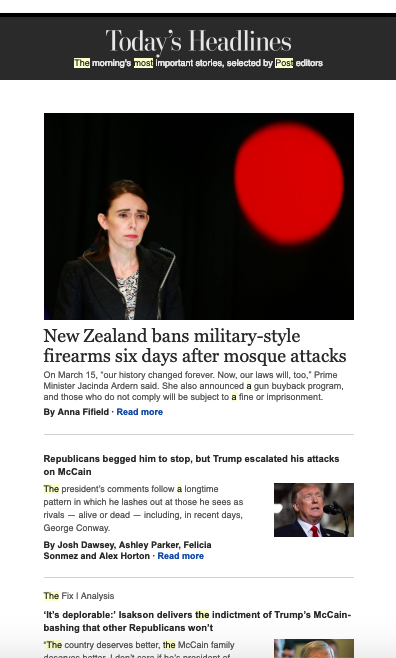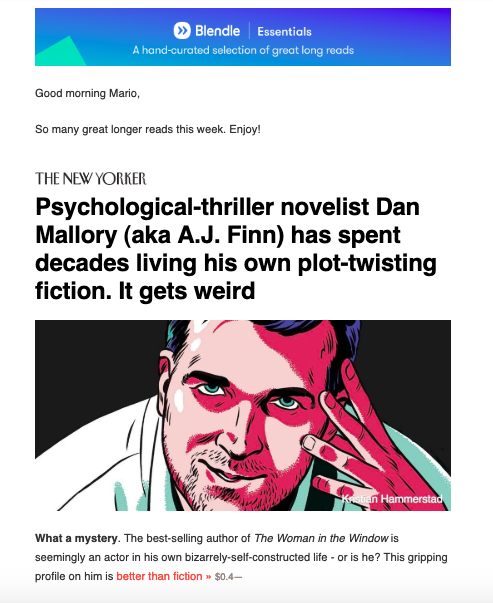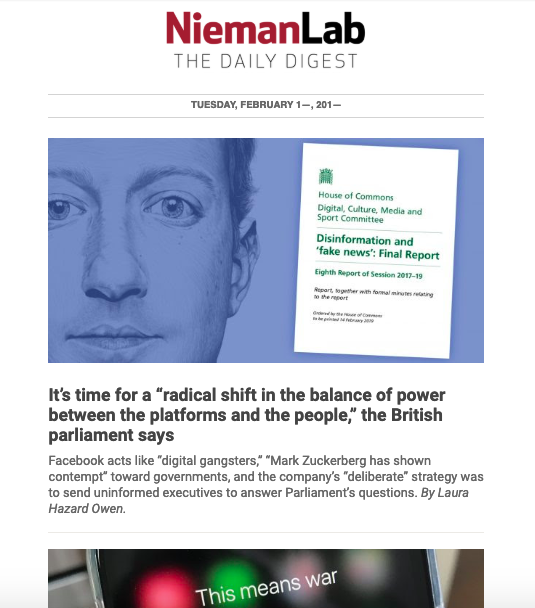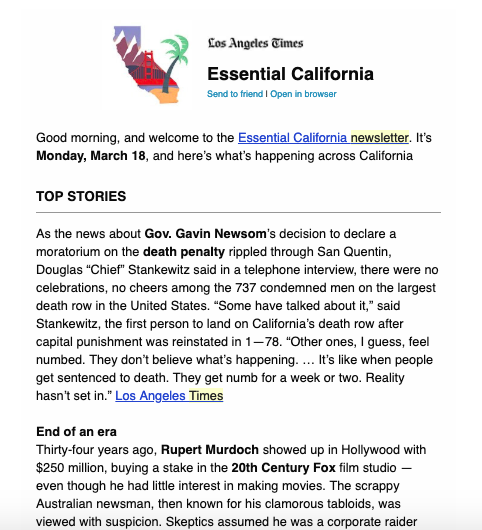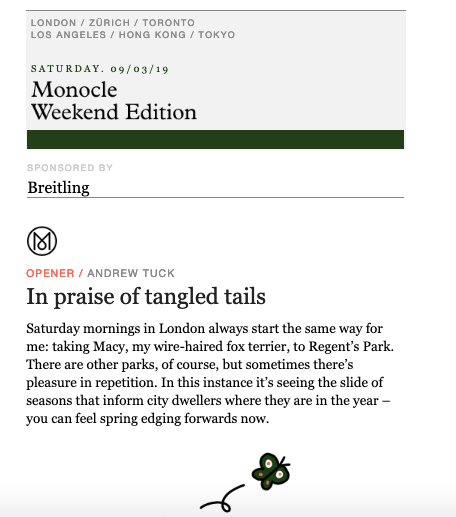This is the weekend edition of TheMarioBlog and will be updated as needed,. The next edition of TheMarioBlog will be Monday, March 25.
Remember the church newsletter that appeared monthly or weekly, usually in the mail with an envelope for you to send contributions? I certainly remember ours, complete with the hours for the saints day to celebrate and even short profiles of parishioners who had done well, or gone to heaven.
Social media is noisy, the hustle and bustle of a busy afternoon in the middle of Times Square.
Newsletters are distinctively quiet and reserved, sort of like that secluded corner in Central Park, the one close to 94th Street where I sometimes stop to contemplate the surroundings, in the middle of a run.
Contemplate is exactly what we do on newsletters. Any publishers who would like to please their readers should think newsletters, if they have not yet done so. These are some popular newsletters:
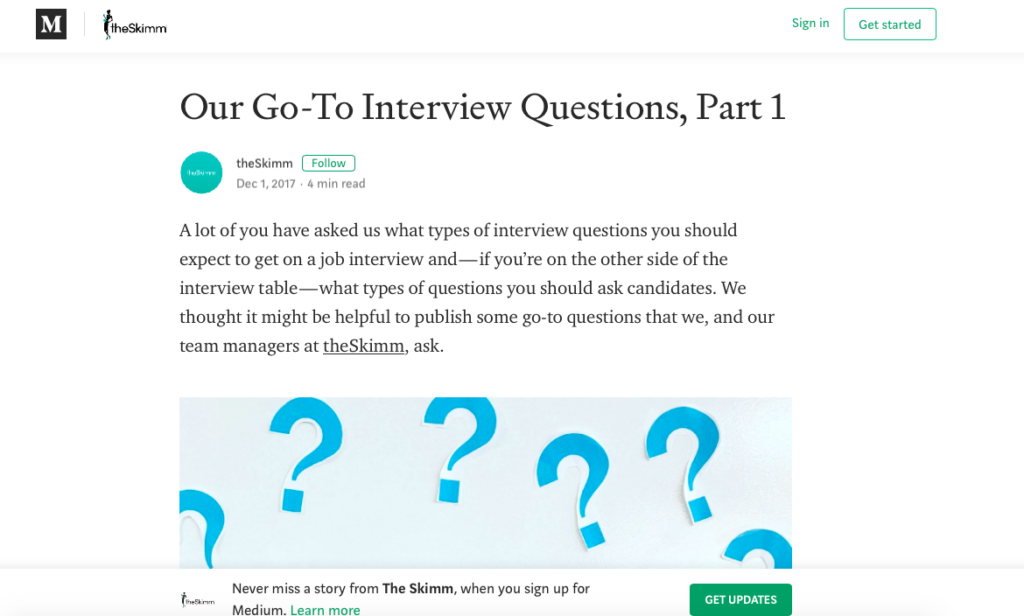
When I authored a popular newsletter at age 12.
Indeed, newsletters are all the rave today, but they are as old as can be. In fact, they are so so old that as a 12 year old child actor in Havana’s CMQ Network, I used to publish a stenciled newsletter which I called Critica y Arte (Reviews and Art), in which I reported whatever my young ears happened to capture between rehearsals, performances and auditions. I sold it for five cents a copy and it was a big success, or so I thought. Remember we had no data analysis available in 1960. For the young who may not know what stencil means just think purplish type and a smell that was intoxicating, almost as much as the news I reported. I still have old clippings of Critica y Arte and I look at it and see precursors to Tweets (very short items, as in: “I saw actress so and so picking up a script yesterday from the network’s concierge. It was a fat one. Could she be in for a part in La Novela de las 10?” Funny and daring. Some entries were the pure stuff of social media today, as when I wrote; “Today I sat and waited for the director to call me to rehearse my scene, but there were so many problems with the setting up of the previous scene, involving a water fountain that did not work, that I sat down in a corner and solved Algebra problems for my homework.”
Maybe that is how I got my practice for Facebook, Instagram and the rest.
Suddenly, newsletters are hot in 2019
Fast forward to 2019 and newsletters are hot. People love to see them in their inbox when they wake up. Some like them in the evening. I get newsletter briefings at both times. I also, like most, have selected the ones I wish to receive.
And that is why I enjoyed this piece by Mike Isaac in The New York Times about the fascination with and the effectiveness of newsletters.
Who would know? Here is what the writer tells us :
“The newsletter is not a new phenomenon. But there is a growing interest among those who are disenchanted with social media in what the writer Craig Mod has called “the world’s oldest networked publishing platform.” For us, the inbox is becoming a more attractive medium than the news feed. The shift toward newsletters is part of a broader change. For years, Mark Zuckerberg, Facebook’s chief executive, asked us to live in a more “open and connected” version of the world. And billions of us did, posting status updates, photos and videos on the social network and flocking to other services like Twitter, where I post regular messages about my mood, personified in photos of my dog.”
”
Why newsletters are so welcome
Newsletters are so popular for mobile consumption that I have devoted an entire segment to them in my new mobile storytelling book, The Story.
Why are newsletters so hot?
- People feel that a well curated newsletter helps them to keep informed on a certain topic. Nobody wants to miss out on the next big story, whether it is about politics, running or cooking.
- Somehow we feel that newsletters are very personal and written just for us. From one person to another is what good newsletters emphasize.
- It arrives in your mailbox, can’t get more personal and private than that right? Remember the Sears Catalog? It also arrived that way, and you thought someone had put it together just for you.
Publishers, please tune in
I recommend to all my clients to publish newsletters pronto.
The New York Times piece author makes the same point:
Newsletters could be a more reliable means of increasing readership for major publishers whose relationships with social networks have soured. Remember when Facebook moved away from promoting videos on the platform? Or when it decided to show more posts from friends and family, and de-emphasize content from publishers and brands? With every shift, big media companies had to adjust.
Read the Mike Isaac newsletter here:
Pre-order The Story
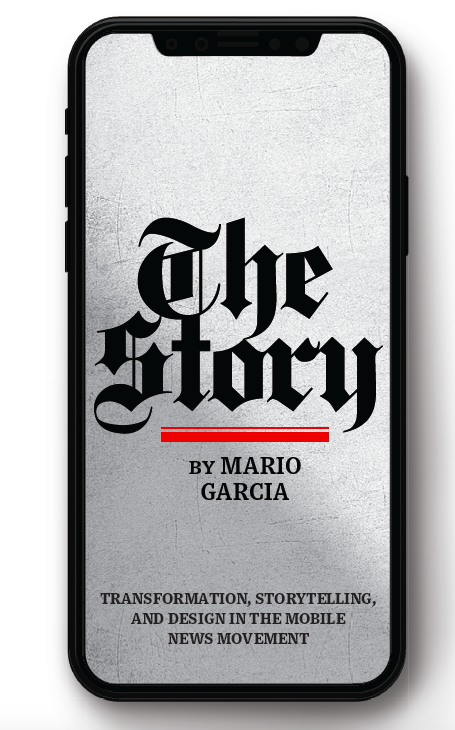
The newspaper remains the most powerful source of storytelling on the planet. But technology threatens its very existence. To survive, the Editor must transform, adapt, and manage the newsroom in a new way. Find out how, pre-orderThe Story by Mario Garcia, chief strategist for the redesign of over 700 newspapers around the world.
Order here:
https://thaneandprose.com/shop-the-bookstore?olsPage=products%2Fthe-story

An interview of interest
http://www.itertranslations.com/blog/2019/3/11/fd60ybflpvlqrgrpdp5ida5rq0c3sp
TheMarioBlog post #3014
